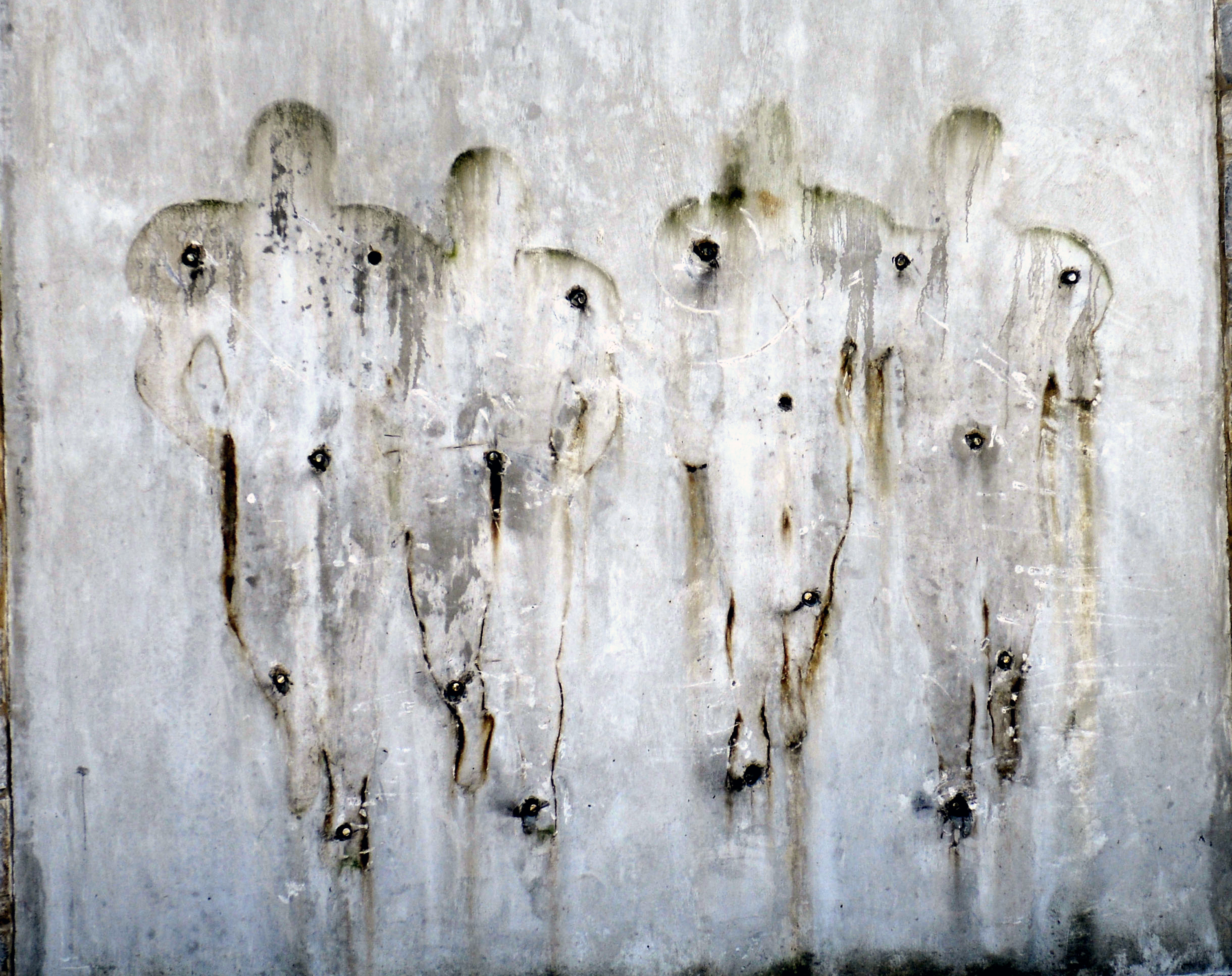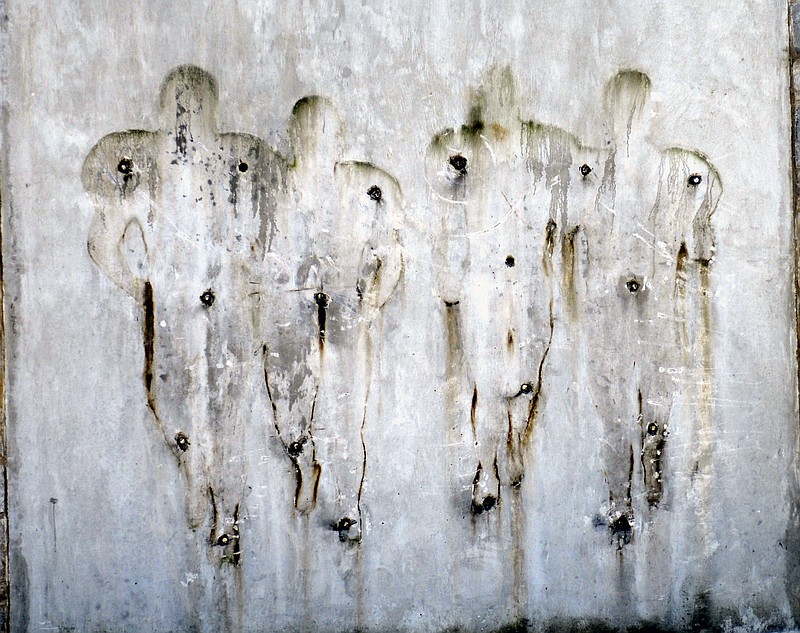 The outline of part of a football statue is visible on the wall after its removal on Sunday July 22, 2012, in State College, Pa. The famed statue of former coach Joe Paterno was taken down from outside the Penn State football stadium on Sunday, eliminating a key piece of the iconography surrounding the once-sainted football coach accused of burying child sex abuse allegations against a retired assistant
The outline of part of a football statue is visible on the wall after its removal on Sunday July 22, 2012, in State College, Pa. The famed statue of former coach Joe Paterno was taken down from outside the Penn State football stadium on Sunday, eliminating a key piece of the iconography surrounding the once-sainted football coach accused of burying child sex abuse allegations against a retired assistantFirst, a disclaimer: For 44 years I was one of Joe Paterno's biggest fans.
I fell and fell hard for almost every aspect of the Penn State football program when I was still in grade school. The exquisitely simple, largely generic uniforms. Paterno's outrageously un-hip attire: black-rimmed Coke-bottle glasses, conservative tie, button-down shirt, khakis, white socks, black coaching shoes.
This guy was so square he surely lived in a cube.
But mostly I fell for Joe Pa's "Success with Honor" philosophy, which was also dubbed the "Grand Experiment," as if no one else before or during his 46 years directing the Nittany Lions ever had dared to coach with such honor and integrity.
This is not to say I always rooted for Penn State. Especially not against most Southeastern Conference schools. But whenever the Nittany Lions won I felt like the good guys had prevailed, that all that was right and honorable and worthwhile about college athletics had triumphed.
Then Nov. 5, 2011, arrived and we learned the rest of Paterno's story, a story he certainly hoped would never be told.
Former defensive coordinator Jerry Sandusky was being charged with sexual abuse against young boys. The charges dated back to his final year on PSU's staff. Far worse, many of the charges took place in Penn State's football facilities after that retirement.
Almost immediately came the questions: "How could Joe not have known something? And if he knew, why did he apparently keep quiet?"
Within four days Paterno was forced to retire. Within 10 weeks he was dead, officially of cancer, but his passing almost certainly was hastened by a broken heart and guilty conscience.
All of which brings us to Sunday morning and the feeling that Penn State again is attempting to stand up for what is right and honorable.
As ESPN televised the British Open, the network's news ticker told of PSU removing Paterno's bronze statue from the west side of Beaver Stadium, where it had stood since 2001, ironically the same year that an assistant coach first told Paterno of seeing Sandusky molest a young boy in a shower.
In a news release, new Penn State president Rodney Erickson said: "I now believe that, contrary to its original intention, Coach Paterno's statue has become a source of division and an obstacle to healing in our university and beyond. ... Were it to remain, the statue will be a recurring wound to the multitude of individuals across the nation and beyond who have been the victims of child abuse."
It could be argued that this was grandstanding, that Erickson chose Sunday for this action because NCAA president Mark Emmert supposedly will bury the Nittany Lions this morning under a penalty of massive scholarship losses and multiple seasons without bowls.
And if that happens without a hearing before the Infractions Committee, perhaps Emmert should face his own probation for becoming judge, jury and executioner in a case that has nothing to do with the NCAA's usual concerns of competitive advantage.
Yet the mere act of removing that statue cannot be overstated. Especially in State College, Pa., where Paterno wasn't just the "moral compass" of the town, as one former resident wrote at the outset of the scandal.
Joe Pa was Penn State. In fact, in the entire history of college football, only one other major college coach ever has captured the heart and soul of his school, if not his entire state, as much as Paterno. And Alabama's Bear Bryant coached the Crimson Tide only for 25 years, not 46.
Understandably, many of those Penn State backers want to cling to all the good the Paterno family did for their school: the $4 million donation to the library, the once-positive national name the football team gave the entire campus, the lives Joe Pa doubtlessly improved through coaching and philanthropy.
But if the Freeh Report regarding Paterno's role in the cover-up is true, it just might go down as the worst abuse of power in the history of this country.
We say "if" only because Paterno wasn't able to defend himself to Freeh and everyone still linked to the scandal is surely only too eager to pile as much blame on the deceased coach as possible.
As for the NCAA's probable penalties, will Emmert at least allow an appeal, as is protocol with every other NCAA ruling? And if not, what individual university president shouldn't be concerned for the future of his program if it should fall victim to a nationally volatile scandal?
Either way, the most troubling chapter in American sports history continues, soon to be extended by years and years of civil suits.
As for taking down Paterno's statue, if it lessens the pain of only one of Sandusky's victims, it is undeniably the right thing to do. But it would be so much better if Penn State could take back the reasons for its removal.
